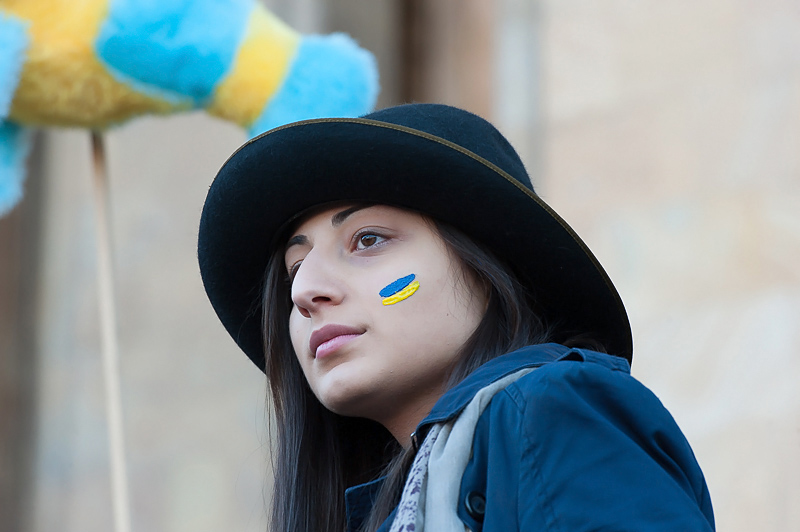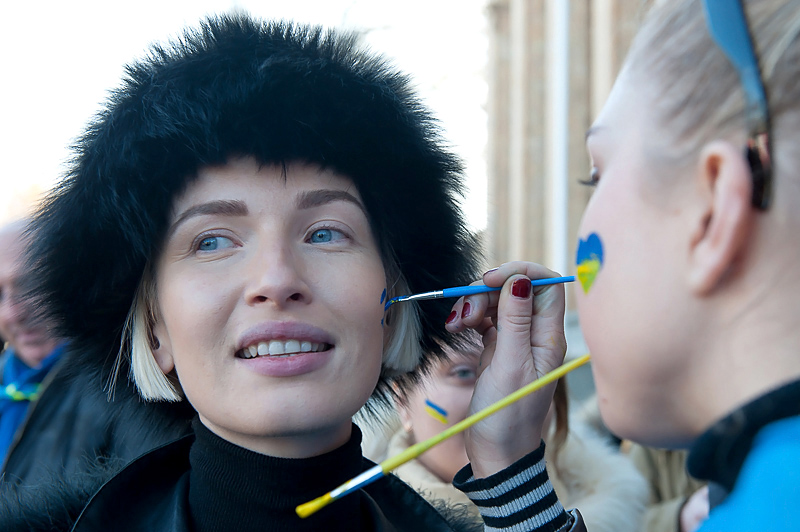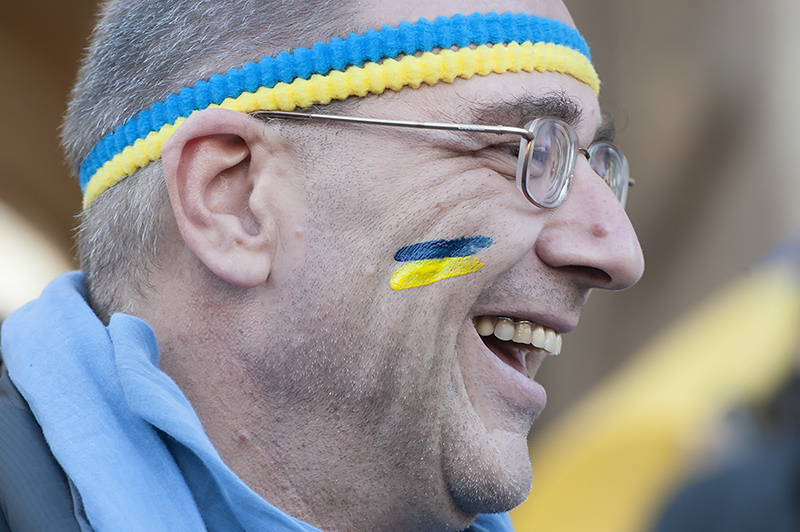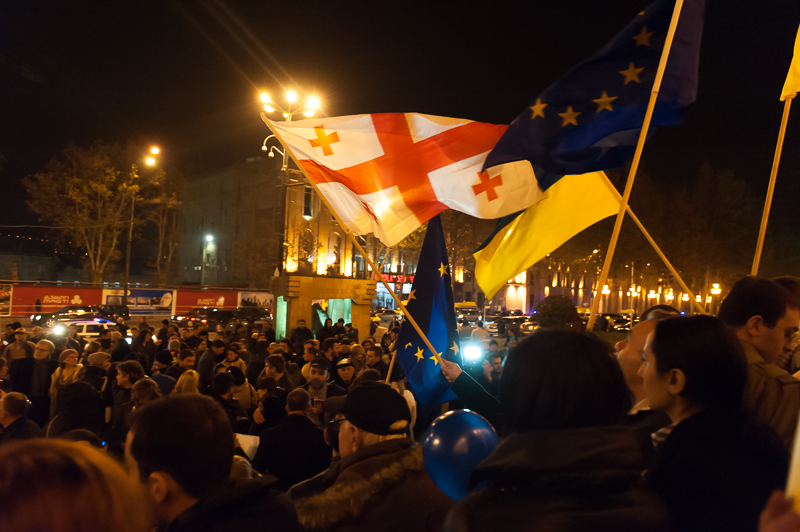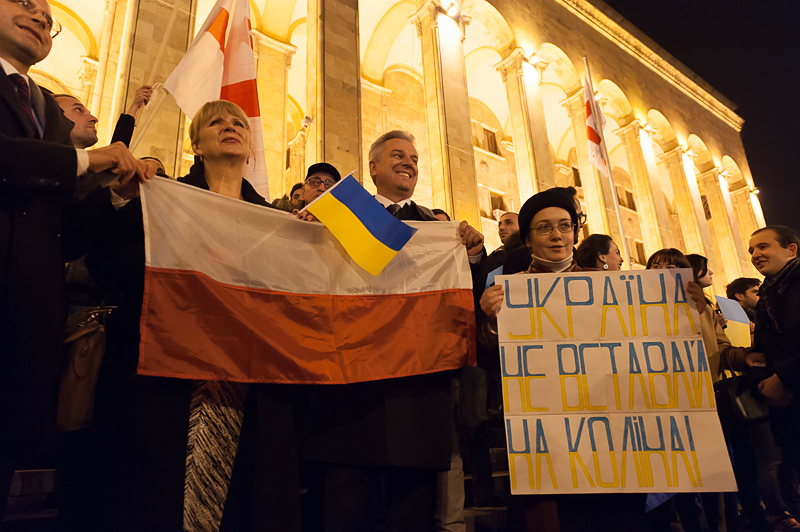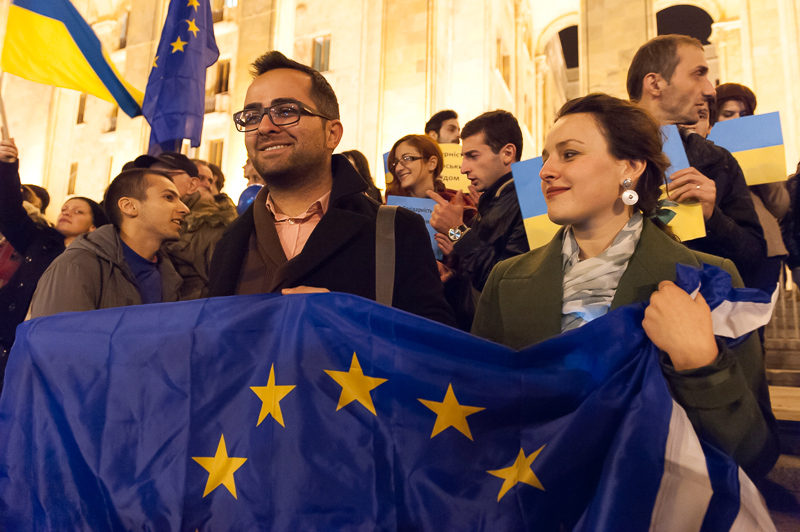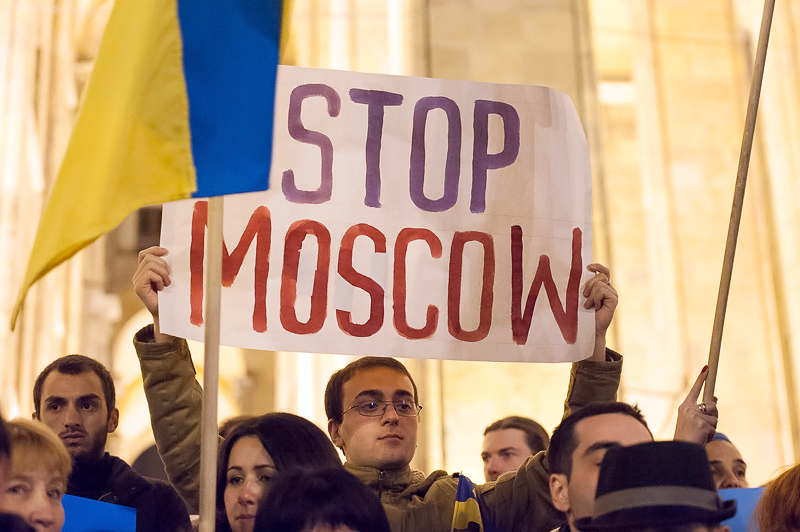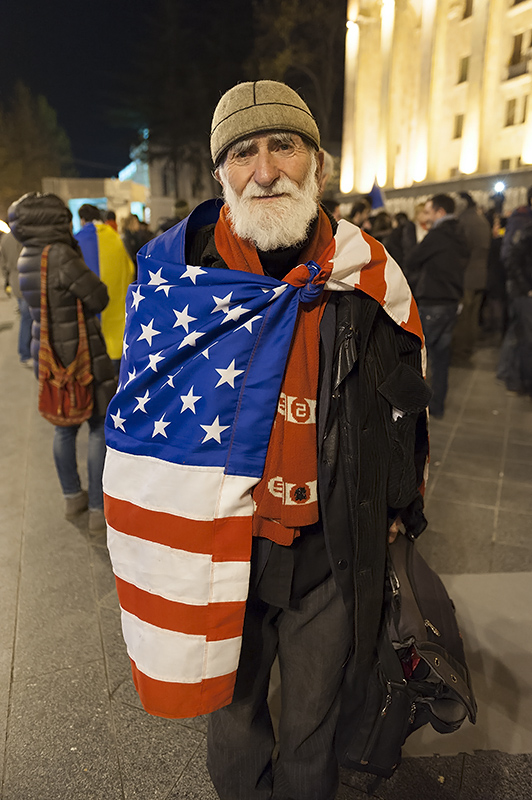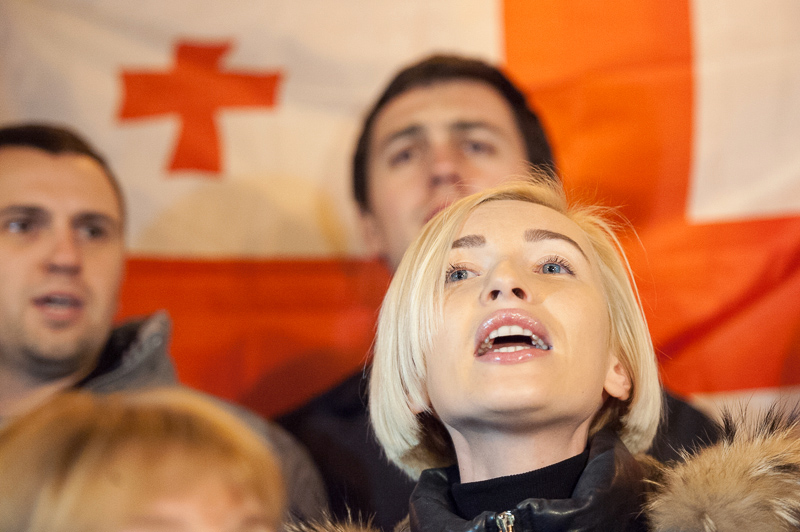Georgia | |
Tblisi-Kiev: solidarity in action
05/12/2013, Redazione
Georgians take to the streets in solidarity with the Ukrainian demonstrators. The photo story by Onnik Krikorian in Tbilisi
Concerns that Russia has used its economic and political muscle to force countries it considers as under its political and economic influence to join a Customs Union of former Soviet states continue to increase. This is especially true after Ukrainian President Viktor Yanukovych’s decision not to sign an Association Agreement with the EU.
Even in Armenia, arguably the most pro-Russian of Moscow’s former satellites, hundreds protested a 2 December official visit by Russian President Vladimir Putin to the country. At stake, demonstrators believed, wasn’t just Armenia’s future integration with Europe, but also what little independence of the country remains.
In neighbouring Georgia, the situation was slightly different. Unlike Armenia and Ukraine, the country had initialed its association agreement in on 29 November in Vilnius. Even so, dozens this week assembled daily outside the country’s former parliament building. Rather than protest, they instead did so as an act of solidarity with protestors in Ukraine.
The action was organised by Otar Karalashvili, a 49-year-old book designer who had met a group of visiting Ukrainian artists and curators the previous week.
“They were desperately trying to reach their friends at home, but communication had broken down, and all the news they got were of some friends beaten up or detained by the police or just missing,” he told Osservatorio. “It was terrible to look at the grim, pale faces of people whom I had seen so happy just a couple of hours before.”
Karalashvili set up a Facebook event to organise daily gatherings. Over 16,000 people were invited, but 2,014 said they would attend. Actual gatherings were far smaller, of course, but were definitely diverse. Ivanna Melay, a Ukrainian singer and TV anchor was also among those who participated, as were two Polish MPs.
“I attended the protests for a simple reason,” said one Georgian at the event, 28-year-old Giorgi Tabagari. “I wanted to somehow express my support of the Ukrainian people. Ukraine and Georgia face the same threat, and many are here because they don’t want similar developments in Georgia.”
“We will stand with the Ukrainians as long as is necessary and depending on how events develop there,” says Karalashvili. “It is important that they don’t feel abandoned. They are facing a very dark force that is threatening to destroy all hopes for building a free, joyful, and decent life.”


